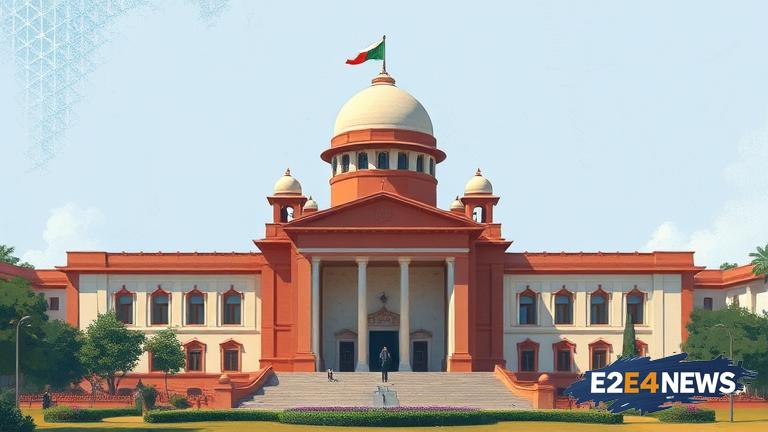In a significant development, the Supreme Court of Pakistan has intervened in a long-standing lease dispute, remanding the case back to the Evacuee Trust Property Board (ETPB) for further review. The decision has sent shockwaves throughout the country, with many hailing it as a major victory for property rights and good governance. The dispute in question revolves around a contentious lease agreement, which has been the subject of intense litigation and controversy. The ETPB, a government agency responsible for managing evacuee properties, had initially awarded the lease to a private party, but the decision was later challenged in court. The Supreme Court’s decision to remand the case back to the ETPB has been seen as a testament to the judiciary’s commitment to upholding the rule of law and protecting the rights of all parties involved. The lease dispute has been ongoing for several years, with multiple parties vying for control of the valuable property. The ETPB has been accused of mishandling the lease agreement, with allegations of corruption and favoritism leveled against the agency. The Supreme Court’s intervention has been welcomed by many, who see it as a necessary step towards ensuring transparency and accountability in the management of evacuee properties. The case has also highlighted the need for reform within the ETPB, with many calling for greater oversight and regulation of the agency’s activities. As the case continues to unfold, it is likely to have significant implications for property rights and governance in Pakistan. The Supreme Court’s decision has set an important precedent, demonstrating the judiciary’s willingness to intervene in cases where the rule of law is being compromised. The ETPB has been ordered to review the lease agreement and make a new decision, taking into account the concerns and objections raised by all parties involved. The agency has been given a deadline to complete the review, and it is expected that the case will be closely monitored by the Supreme Court. The lease dispute has also sparked a wider debate about the management of evacuee properties in Pakistan, with many calling for greater transparency and accountability. The ETPB has been accused of failing to properly manage the properties, leading to allegations of corruption and mismanagement. The Supreme Court’s intervention has been seen as a major step towards addressing these concerns, and it is likely that the case will have far-reaching implications for the management of evacuee properties in Pakistan. The case has also highlighted the importance of the judiciary in ensuring that the rule of law is upheld, and that the rights of all parties are protected. The Supreme Court’s decision has been hailed as a victory for justice and transparency, and it is likely to have a significant impact on the development of property law in Pakistan. As the case continues to unfold, it is likely to be closely watched by lawyers, policymakers, and the general public. The Supreme Court’s intervention has sent a strong message that the judiciary will not tolerate any attempts to compromise the rule of law, and that all parties will be held accountable for their actions. The case has also sparked a wider debate about the role of the ETPB in managing evacuee properties, with many calling for greater oversight and regulation of the agency’s activities. The ETPB has been accused of failing to properly manage the properties, leading to allegations of corruption and mismanagement. The Supreme Court’s intervention has been seen as a major step towards addressing these concerns, and it is likely that the case will have far-reaching implications for the management of evacuee properties in Pakistan. The case has also highlighted the importance of transparency and accountability in the management of public assets, and the need for effective oversight and regulation to prevent corruption and mismanagement. The Supreme Court’s decision has been welcomed by many, who see it as a necessary step towards ensuring that the rule of law is upheld, and that the rights of all parties are protected. The case is likely to have significant implications for the development of property law in Pakistan, and it is likely to be closely watched by lawyers, policymakers, and the general public.
